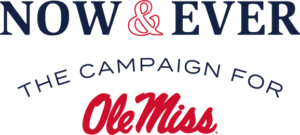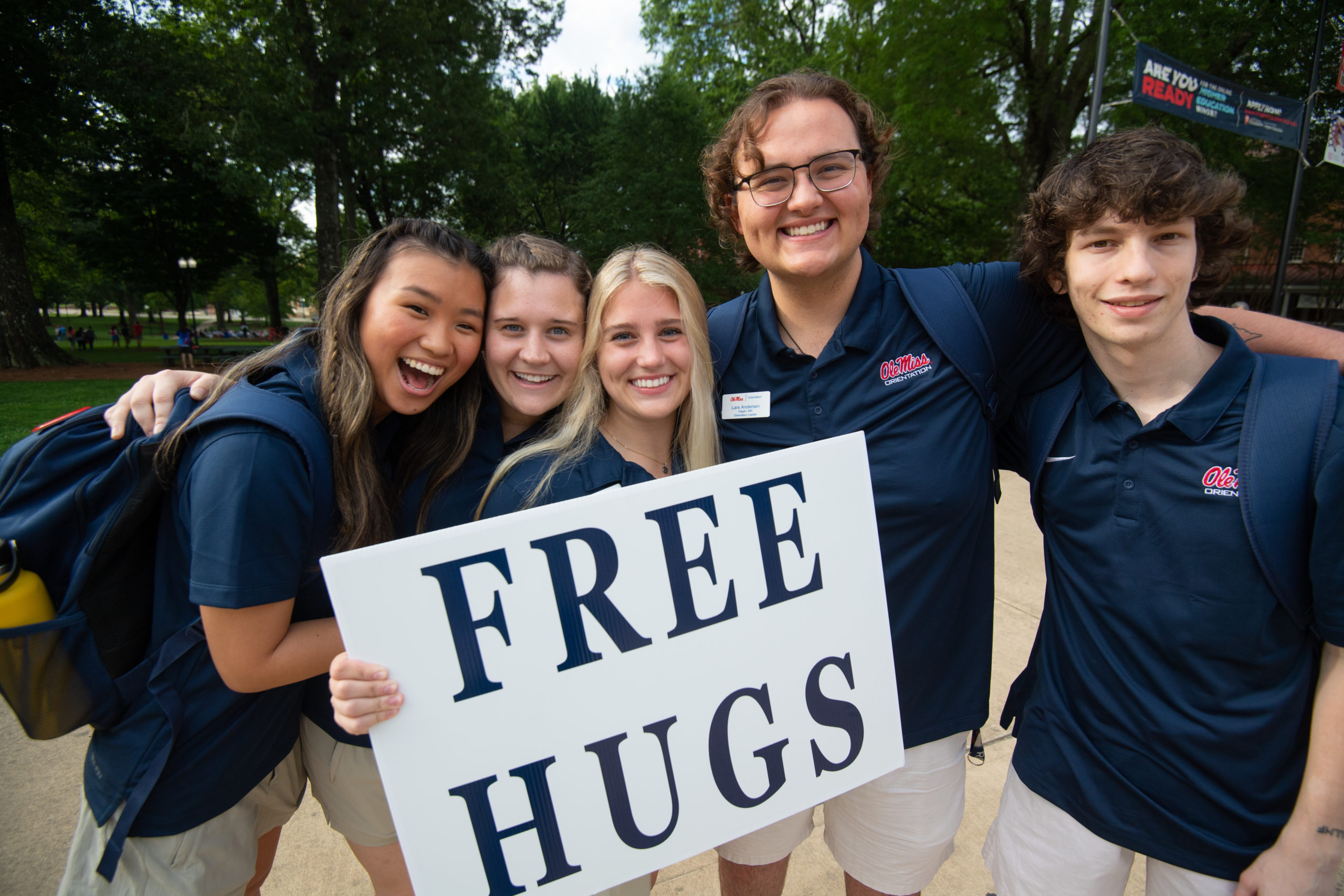With their best hopes for the University of Mississippi and an initial $1 million pledge in 1999, Scarlotte and Crymes Pittman of Jackson, Mississippi, helped UM reach record retention rates this academic year.
The Pittman Fund’s gifts, which totaled $4.49 million over 15 years, funded UM’s First-Year Experience program. This year, retention, meaning students who are opting to continue their studies at UM, was 89.3%, well above the national retention rate, which was 72.4% for fall 2020, according to the National Student Clearinghouse Research Center.
The Pittmans’ initial support makes the important work of the First-Year Experience program possible today.
“This program is being well-managed and the results prove it,” Crymes Pittman said. “Through this gift, I feel as if we have contributed to the upward momentum that is evident on the Oxford campus.”
 Ole Miss’ gains in total enrollment (22,967 this year representing a 5.1% increase) over each of the past two years defy a national trend of declining enrollment. The National Student Clearinghouse reports that enrollment nationally declined 1.1% for that period compared to fall 2021 and that it has declined a total of 3.2% since fall 2020. By comparison, UM enrollment increased 6% since fall 2020.
Ole Miss’ gains in total enrollment (22,967 this year representing a 5.1% increase) over each of the past two years defy a national trend of declining enrollment. The National Student Clearinghouse reports that enrollment nationally declined 1.1% for that period compared to fall 2021 and that it has declined a total of 3.2% since fall 2020. By comparison, UM enrollment increased 6% since fall 2020.
Noel Wilkin, provost and executive vice chancellor for academic affairs, said the First-Year Experience program’s class — now taken by 75% of freshmen — recognizes and addresses the fact that life transitions can be difficult.
Wilkin said that while starting college can be exciting, it also can present challenges for students. He noted that the First-Year Experience course helps facilitate a smooth transition to college and equips students with knowledge, skills and abilities that will serve them well in their academic pursuits and in life.
For example, students who take this course learn about the university, time management, good study skills, decision-making, financial literacy, finding and joining clubs, and more, Wilkin said.
“The course is taught by qualified faculty and staff who serve as valuable resources and mentors to students as they navigate this transition. We are immensely grateful to the Pittmans who invested in student success. We would not be where we are today without them,” Wilkin said.
Funds Could Propel UM Even Higher
Working with the First-Year Experience program, the Completion and Student Success Advisory Board has been piloting programs for sophomores, juniors and seniors. As students explore majors and careers, they need more academic- and experiential-focused opportunities.
“Our student success initiatives, such as hands-on experiences, mentorship, academic advising, research and leadership development have the potential for transformational effects on our current 68.4% graduation rate,” said Kyle Ellis, director of the Center for Student Success and First-Year Experience.
The average SEC graduation rate is 75.5%. Replacing students who leave is costly. If the 89.3% who returned for sophomore year graduated, the investment return would be an estimated $33 million over three years. Students who do not finish college cannot compete for as many jobs and rarely are as successful financially.
Numerous naming and giving opportunities can greatly affect student success and graduation rates. Gifts supporting these areas in amounts ranging from $50,000 to $1 million can permanently link your name to the university and help students cross the stage on graduation day.
Completion Scholarship Fund
Unforeseen circumstances can keep juniors or seniors from graduating. Students shy only a few credit hours cannot re-enroll because of bills as small as $500 for tuition and fees. Once students leave the university, it is difficult to return, leaving them saddled with loan payments and no degree.
High-Impact Experiences
Study abroad, internships and co-ops bolster student satisfaction, career exploration, professional networks and work readiness.
Peer Network
Students relate to students. Paid upper-level students tutor, mentor and advise students just beginning or struggling with classes or non-academic barriers to help build a community of support.
To support Student Success or the First-Year Experience program, contact Charlotte Parks, vice chancellor for development, at cpparks@olemiss.edu or 662-915-3120.


